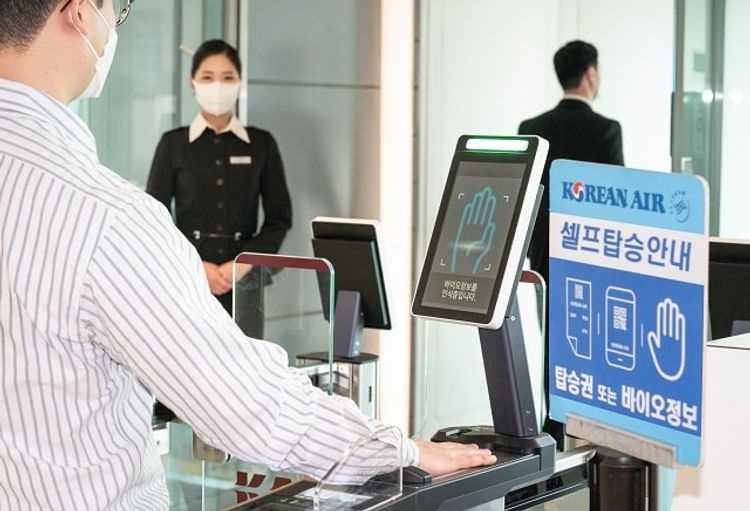Gimpo Airport in South Korea has installed biometric self-boarding services for domestic flights with Korean Air.
Using the biometric solution, passengers can pass through Korean Air’s domestic boarding gates by scanning their palm and will not need to present an actual boarding pass. The palm vein scan will enable the airline to immediately check the passenger’s identification and boarding pass information without checking a paper or mobile boarding pass.
The palm scanning device recognizes the passenger by matching their pre-registered palm vein information, which is unique to each person. Palm vein biometric information is expected to increase efficiency and strengthen the security of the identity verification process and significantly reduce flight boarding times.
The service is eligible to all Korean citizens over the age of seven. To use the biometric self-boarding service, passengers need to register their palm vein information at the self-registration desk on the departure floor of Gimpo Airport, which can be done by presenting an ID card and providing consent to the use of their personal information.
Since August 2021, Korean Air has partnered with the airport’s operator, Korea Airports Corporation, and has cooperated on the system buildup and testing required to launch the biometric self-boarding service. The airline plans to expand the service to all domestic route departure gates at Gimpo Airport by the end of 2022 and to Busan Gimhae Airport in August 2022.
The airline is also introducing biometric information-based technologies, the core of IATA’s One ID initiative, through facial recognition services which are provided by overseas airports authorities in Atlanta, Los Angeles, New York and Singapore. One ID is an integrated identification initiative using passengers’ biometric information to achieve interoperable system coordination between airports, airlines and governments around the world.


